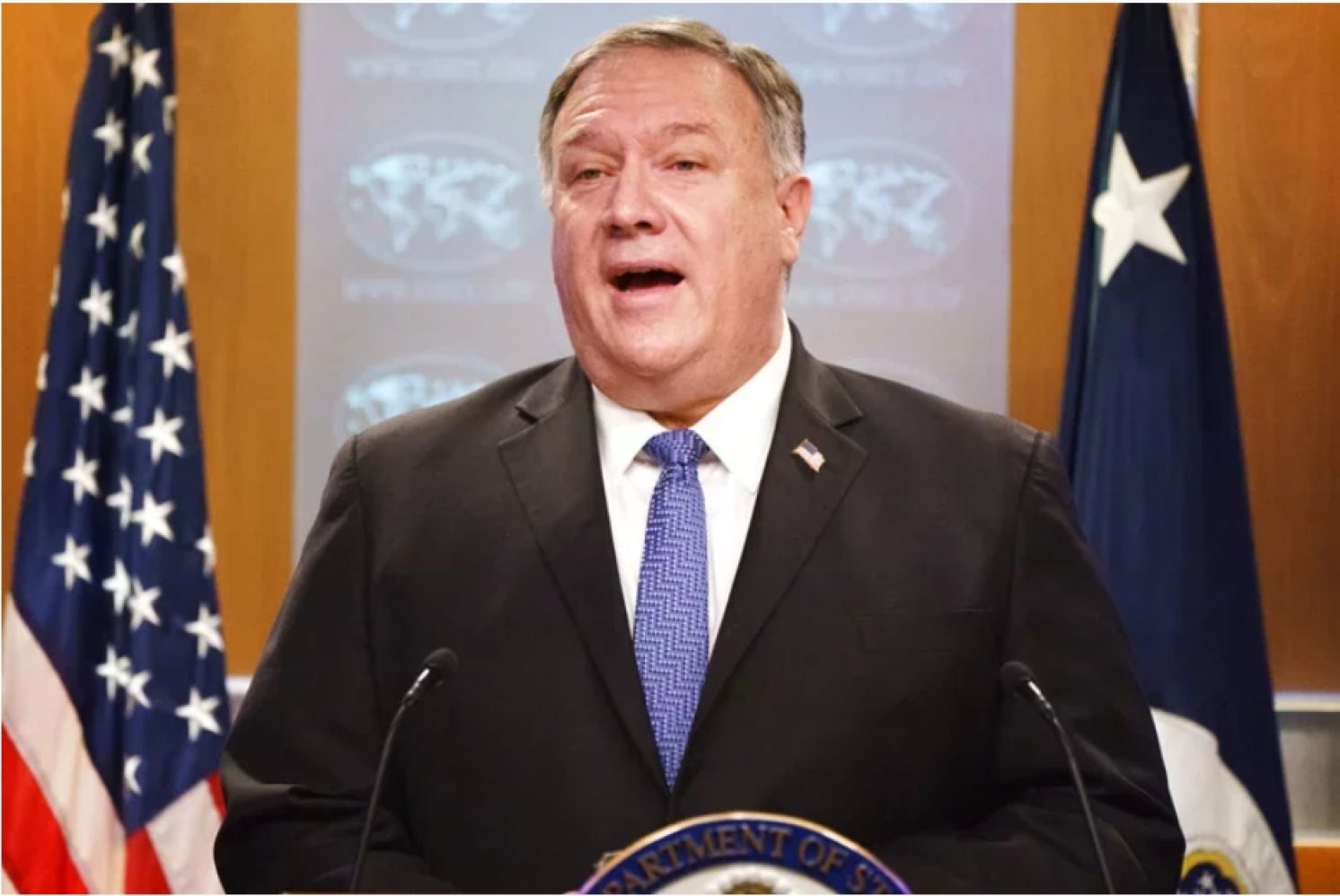
Pompeo's Remarks Put U.S. "One China" Policy into Question
United Daily News, November 13 and 15, 2020
U.S. Secretary of State Michael Pompeo stated that “It’s always important to get the language right. Taiwan has not been a part of China.” He made the remarks in a radio interview with Hugh Hewitt on November 12. He indicated: “That was recognized with the work that the Reagan administration did to lay out the policies that the U.S. has adhered to now for three and a half decades, and done so under both administrations.” It’s in fact bipartisan, Pompeo said in the interview. He emphasized: “This will continue for as long it’s the case that the Chinese and the Taiwanese can’t figure their way through it.”
Two days later, the Department of State said that the “the U.S. takes no position on the issue of Taiwan’s sovereignty,” it was released in the form of a background information to Taiwan media stationing in Washington D.C. The State Department spokesperson indicated as background that “The U.S. has long had a One-China policy. This is distinct from Beijing’s One-China principle under which the Chinese Communist Party asserts sovereignty over Taiwan.” The spokesperson emphasized that “The U.S. takes no position on sovereignty over Taiwan.” The spokesperson further elaborated that the U.S. One-China policy remains guided by the Taiwan Relations Act, the three joint communiques between the U.S. and China, and the Six Assurances to Taiwan, as it has been in the past four decades.”
Shelley Rigger, professor of political science of Davidson College, said Pompeo misstated “One-China policy,” that can be ignored. Richard Bush, former chairman of American Institute in Taiwan, responded that Pompeo mixed a variety of different complex issues together, only to make the outside world baffling. A reporter compared Pompeo’s statement with the One-China policy of the State Department and asked whether Pompeo violated the One-China policy. The State Department’s reply did not respond to or retract Pompeo’s statement, but reiterated the One-China policy. The spokesperson said: “The U.S. has long had a One-China policy, which is different from Beijing’s One-China Principle of claiming that the Chinese Communist Party asserts sovereignty over Taiwan”. And the U.S. “takes no position on sovereignty over Taiwan.”
The spokesperson emphasized: “The fundamental U.S. interests is that the Taiwan question to be solved peacefully, without coercion, and in a manner acceptable to the people on both sides of the Strait”—as Beijing promised.
The wording that “the U.S. takes no position on the issue of sovereignty” rarely appears in the U.S. government’s language explaining its One-China Policy. However, this statement is tantamount to the 1972 Shanghai Communique that the Chinese on both sides of the Strait agree that there is only one China, and Taiwan is part of China, and the U.S. government does not raise any objections to this position. This is also the connotation of the 1978 Communique on the establishment of diplomatic relations and the August 17 Communique of 1982. In the Shanghai Communique, the Chinese side stated that the liberation of Taiwan is China’s internal affairs, and other countries have no right to interfere; the Chinese government firmly opposes any activities aimed at “One China, On Taiwan,” “One China, Two Governments,” “Taiwan Independence,” or activities trumpeting Taiwan’s status as undetermined.
From:
https://udn.com/news/story/10575/5011536